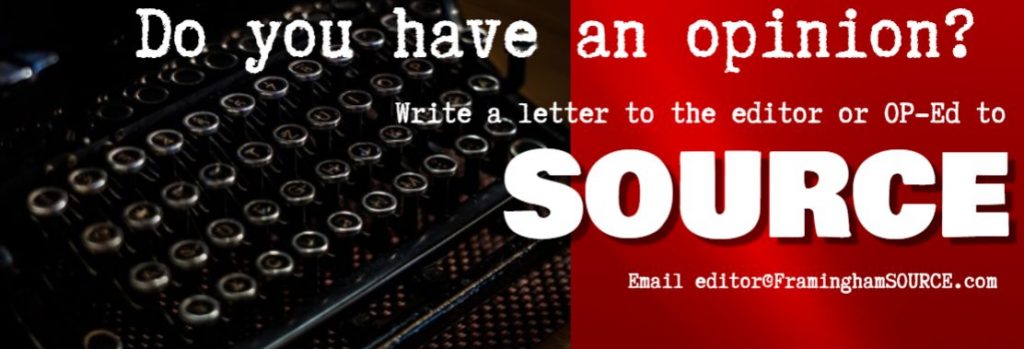[broadstreet zone=”52386″]
FRAMINGHAM – During its February 22nd meeting last week, Framingham’s Disability Commission voted unanimously to speak out publicly in condemning the comments made by Michael Hugo, Framingham Democratic Committee Chair, at a City Council meeting on February 7th.
In both a prepared written statement and verbal public comment, Mr. Hugo argued for abortion access in the City of Framingham as a means of avoiding increased special education costs to our City’s school district.
While increased access to women’s healthcare in our City speaks to progress, inclusion, and equitable access, Mr. Hugo’s argument was undeniably flawed in its disregard for the lives of persons with disabilities.The Disability Commission wishes to acknowledge that Mr. Hugo has responded to a public outcry from City officials, disability advocates, the disability community itself, and his own political allies, by apologizing for the harm his comments have caused. These apologies, however, are only the first step in our community’s healing process.
The members of Framingham’s Disability Commission are asking that not only Mr. Hugo, but our community as a whole, take this unfortunate circumstance and create an opportunity to engage in meaningful dialogue as a means of learning about the experiences, challenges, and civil rights of persons with disabilities. Also important is that we seek opportunities to educate and learn about the assumptions that are often made in error about the personal capacity of persons with disabilities, and even more critically, about the ideologies and systems that inform those persistent assumptions. In short, we need to dig deeper together as a community that cares about inclusion and access in order to repair the damage done by these recent comments, as well as by the assumptions they represent.
[broadstreet zone=”53903″]
Mr. Hugo’s comments assume a correlation between abortion access and disability that, at best, lacks clarity and is without grounding in empirical evidence. At worst, Mr. Hugo’s comments are grounded in dangerous ideological assumptions about socioeconomic inequity, institutional racism, eugenics, and rightful access to healthcare, education, and public assistance.
While the community may be able to forgive the unintended harm caused by Mr. Hugo’s comments in time, whether or not the above implications were intentional, remains in question.
A step beyond forgiveness, forgetting and moving forward together will require further understanding of the origin and grounding of the statements Mr. Hugo made, and we ask that he examine those thoroughly with curiosity and an open mind. While Mr. Hugo may not have intended to offend or cause harm, as he has stated in multiple apologies, he certainly did intend to make these statements as they were written and provided to at least some members of Framingham’s Democratic Committee in advance of his public comments. At least some members of the Framingham Democratic Committee, in fact, advised Mr. Hugo against delivering this statement, and the FDC has since disavowed his comments. And so, we are left asking, what were Mr. Hugo’s intentions? What ideology informed his comments? What exactly did he mean when he equated a life with the monetary cost associated with educating and supporting that life? Many questions remain unanswered, especially for those of us who pursue education, do our jobs, raise families, and contribute to our communities, all while navigating life with a disability.
[broadstreet zone=”59983″]
Both the Framingham community and the disability community have engaged in significant debate, dialogue, and thoughtful reflection in the time that has passed since Mr. Hugo’s remarks. We ask that Mr. Hugo engages in this dialogue with his community in order to shed light on his intentions and on a path forward.
At the “advice of counsel,” however, Mr. Hugo was unable to attend the Disability Commission’s February 22nd meeting and therefore unable to contribute to the meaningful dialogue that took place at that meeting. Mr. Hugo’s voice was distinctly absent from a conversation that could have effectively contributed to healing and progress for our community.
As of February 26, the Framingham Democratic Committee has voted against asking for Mr. Hugo’s resignation as Chair and, at this time, has elected not to pursue removing him from his leadership role within the organization as a result of his harmful remarks. And so, it remains up to us as community members to take the action steps necessary for healing.
[broadstreet zone=”59948″]
While we ask Mr. Hugo to reconsider his unwillingness to engage and to help our community make meaning of his comments, we also invite everyone in our community to contribute to our ongoing dialogue around inclusion, access, and the value persons with disabilities bring to our community.
The Framingham Disability Commission meets on the fourth Wednesday of every month, and each and every one of our meetings is open to the public, with time allotted each month for meaningful public comment. Join us, engage, ask honest questions, contribute, and learn. Let’s move forward together…One Framingham – Focused on the Future!
Members of Framingham’s Disability Commission:
Sheryl L. Goldstein, MSW, Chair
Meghan L. Todd, PhD, Vice-Chair
Rose Quinn, Treasurer
Tyler Terrasi, Clerk
Richard Finlay, Commissioner
Susan Santone, Commissioner
Andrew Cummings, Commissioner


